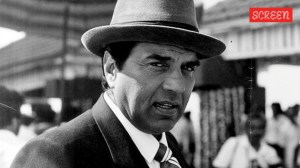‘Highs and lows,but no regrets’
Its been two decades,but for Tendulkar,its still the lasting memory of his career,and of his life.
Most days in our lives are unremarkable. They start and they end,without leaving behind any lasting memory. November 15,1989 was a Wednesday. In Karachi,Pakistan,it was the first time that a curly-haired 16-year-old looking completely out of place stepped on a cricket field in a white,India shirt.
Its been two decades,but for Tendulkar,its still the lasting memory of his career,and of his life.
The moment that I wore my India cap is the most memorable. It was a dream,and the dream had come true. Im very fortunate to be living that dream for so long, Sachin Tendulkar said on Friday,two days before his 20-year anniversary in Test cricket. There have been a lot of highs after that,but whatever has happened has been because of that day,the rest just a reflection of my contribution to the Indian team.
Over the years,Tendulkar has evolved into a metaphor that has defined a generation. From boy wonder,to superstar,to elder statesman,he has fulfilled every role. But in his first Test,there was a moment when he wondered if he really belonged on the big stage. I got out on a low score. I was tense,I didnt really know what was happening,and I kept asking myself,do I belong here.
In the next match at Faisalabad,however,he stuck around in tough conditions and got a half century. That innings was perhaps the turning point of my life, he said. I understood that if you hang in there,if you spend a few minutes in the middle,you understand the pace,bounce and spin.
His transition to international cricket went almost unnoticed because of his almost immediate success wherever he played,but Tendulkar believes the first few years in international cricket were a learning process. The most important lesson I learnt was that you cant hit every ball. In school cricket and to a certain extent in Ranji Trophy,I would go out and attack,but Pakistan,New Zealand,England,Australia,and also South Africa,taught me to be more selective,taught me to build an innings,and taught me to respect bowlers. To respect a bowler when hes bowling very well is a wise thing to do, he said.
Another defining turn in his career came in 1994 in New Zealand,when he opened the batting in one-day cricket for the first time. I remember that day clearly, he said. Sidhu had a stiff neck on the morning of the match,and he couldnt play. I went to Azhar and Ajit Wadekar (the manager) and requested them to give me a chance. I felt that I could play a lot of shots in the first 15 overs like Mark Greatbatch had done in 1992 and Sanath Jayasuriya started doing later in 1996 so I told them just give me one chance,if I dont succeed Ill never ask them again. Luckily,they agreed,and I got runs in the very first match,which changed how my one-day career would pan out.
Established as the countrys biggest icon midway through the 90s,Tendulkar never let the adulation go to his head,always remaining humble,almost polite to a fault off the field despite the status and the intense scrutiny. This is the way Ive known my life from the age of 14. That is when I started playing first-class cricket,when I was part of the Mumbai Ranji Trophy team. But Im comfortable with it. Ive not made any effort to stay humble,its just my upbringing. When I was just playing school cricket,I was still scoring a lot of runs,but nobody in my family got carried away. Its quite easy for a 12 or 13-year-old boy to get carried away when he sees his picture printed in the newspaper,because its something special,but my family made sure my feet were on the ground. We celebrated by distributing sweets,and that was where it stopped.
But there were moments on the field when his aggression was visible,especially at the crease after bowlers sledged him in the initial part of his career (before they gave up,realising it would only rile him to punish them). Im not aggressive off the field because I need to conserve it for the play on the field, he said.
Somewhere there is still a 16-year-old hidden inside who wants to go out and express himself. Aggression should help you do well,not help your opposition. A player doesnt need to say anything,when you look into his eyes you know whether he is aggressive or not.
Remembering the first century of his life,against Don Bosco for Shardashram,he said: I was unbeaten on 96 overnight and couldnt sleep. I was impatient to get to my first ever century. But another reason for my impatience was I had invited (his coach Ramakant) Achrekar Sir for dinner. He had said he would come the day I scored a century. I scored it in the very first over. The first thing I told Achrekar Sir was he now had to come to my house.
Tendulkar donned the mantle of captain briefly,and only mildly successfully,twice in his career. Its a great honour to lead India,and I had some wonderful moments,starting from the first Test against Australia in Delhi,to the Titan Cup,and then the tournament in Toronto. There were highs and there were lows,but I have no regrets. When I look back on my career,in totality I enjoyed every moment.
But then there were moments,especially in the first half,when Tendulkars individual success was often coupled with the sadness of defeat. It was a lonely time,when he didnt feel like celebrating because the team had lost. You feel bad because youve done well but India hasnt. I play for the team and it is not about individuals. So you are not excited,you cannot share that wonderful personal moment with people because youve lost the game. It is a difficult thing, he said.
People often ask me about the pressure,but there is pressure on everybody. I dont believe that my pressure is greater than yours. From my childhood,Achrekar Sir taught me the ingredients for success dedication,discipline,focus,getting your priorities right. My brother Ajit guided me,my father supported me,and my mother ensured I was well fed. They are all forces contributing in different ways. If my Mom doesnt understand cricket,she prays for me. My aunts,uncles,friends,they all contributed and I respect them for that. I go out to bat all alone,but actually Im representing all of them.
And so,20 years later,after inspiring a country to believe in itself,to name its children after him,Tendulkar goes on,improving on his strengths,ironing out his weaknesses. Ive always had the people of India with me. When you do something,when you reach somewhere,you need someone to share your joy with. Ive had a billion.





- 01
- 02
- 03
- 04
- 05


























